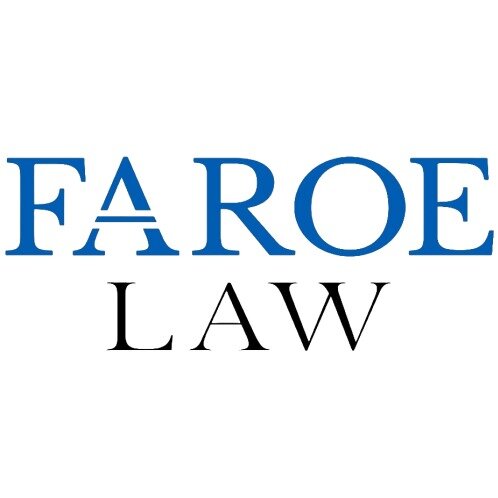Best Natural Resources Lawyers in Faroe Islands
Share your needs with us, get contacted by law firms.
Free. Takes 2 min.
Or refine your search by selecting a city:
List of the best lawyers in Faroe Islands
About Natural Resources Law in Faroe Islands
The Faroe Islands, an autonomous territory within the Kingdom of Denmark, are known for their rich natural resources, particularly in marine areas. The Faroese economy largely revolves around fishing and aquaculture, utilizing the abundant marine resources surrounding the islands. Natural Resources Law in the Faroe Islands encompasses the regulation of these resources, focusing on sustainable exploitation and conservation efforts to ensure long-term ecological balance and economic viability. This legal framework addresses issues relating to fishing rights, environmental protection, marine biodiversity, and the management of mineral resources.
Why You May Need a Lawyer
There are multiple scenarios where individuals, businesses, or organizations may require legal assistance in the field of natural resources in the Faroe Islands:
- Fishing Quota Disputes: Legal issues relating to the allocation and regulation of fishing quotas are common, due to the significance of these resources to the Faroese economy.
- Environmental Compliance: Companies involved in natural resource extraction may need guidance on adhering to environmental laws and sustainable practices.
- Mining and Resource Extraction Permissions: Navigating the local regulations for obtaining mining rights and extracting mineral resources can be complex.
- Legal Representation: In cases of non-compliance or disputes over resource allocation, legal representation might be necessary to resolve conflicts.
- Policy Changes and Regulatory Upgrades: Companies must stay informed of changes in laws or regulations which may impact operations and require legal interpretation.
Local Laws Overview
The legal landscape governing natural resources in the Faroe Islands is intricate, shaped by international, Danish, and local laws. Key aspects include:
- Marine Resource Management: The Faroese Fisheries Ministry administers fishery practices, ensuring sustainable fishing and compliance with international conservation and management principles.
- Environmental Protection Laws: Include regulations that protect marine and terrestrial ecosystems from over-exploitation and pollution.
- Regulations on Oil and Mineral Exploitation: Laws govern exploration and extraction activities within territorial waters, emphasizing sustainable practices and local economic benefits.
- Cultural and Historical Safeguards: Laws that protect cultural heritage sites, which are often intertwined with natural resource locations.
Frequently Asked Questions
What is the primary focus of natural resources law in the Faroe Islands?
The primary focus is on sustainable management and exploitation, especially of marine resources, accounting for economic viability and ecological balance.
Are there restrictions on foreign entities looking to exploit natural resources?
Yes, foreign entities face specific regulations and often require partnerships with local companies and adherence to strict local and international environmental standards.
How are fishing quotas determined?
Fishing quotas are allocated based on scientific assessments of fish stocks, international agreements, and national policies aimed at maintaining sustainable fish populations.
What role does the Faroese government play in resource management?
The government formulates policies, enforces regulations, and oversees sustainable practices in resource utilization while facilitating development projects.
How can disputes regarding natural resources be resolved?
Disputes are resolved through negotiation, arbitration, or litigation in Faroese courts, often requiring specialized legal expertise.
What environmental safeguards exist related to resource extraction?
Numerous laws ensure minimal environmental impact, including the adoption of eco-friendly technologies and enforcing rigorous environmental assessments before any project.
Is there a focus on renewable energy resources?
Yes, the Faroese government supports renewable energy, focusing on wind, hydroelectric, and tidal energy projects to reduce reliance on fossil fuels.
Can I obtain legal aid for disputes related to natural resources?
Legal aid may be available for certain disputes, depending on the case's nature and eligibility under Faroese legal aid guidelines.
Are there special permits needed for oil exploration?
Oil exploration requires specific exploration licenses, environmental compliance, and alignment with Faroese and international regulations.
What organizations oversee resource management?
The Faroese Fisheries Ministry, environmental agencies, and other governmental and international bodies oversee various aspects of resource management.
Additional Resources
Several resources can assist with inquiries or legal issues related to natural resources in the Faroe Islands:
- Faroese Fisheries Ministry: Governing body for fishing regulations.
- Environment Agency of the Faroe Islands: Provides information on environmental laws and initiatives.
- Faroese Geological Survey: Offers insights into mineral resources and exploration activities.
- University of the Faroe Islands: Academic research and publications on sustainable resource management.
Next Steps
If you require legal assistance in natural resources, consider the following steps:
- Consult a Specialist Lawyer: Contact a lawyer specializing in natural resources law in the Faroe Islands to discuss your specific issues.
- Gather Relevant Information: Collect all documents and information related to your issue, such as contracts, permits, and correspondence.
- Understand the Legal Framework: Educate yourself on the relevant aspects of natural resources law to better understand your situation.
- Explore Mediation Options: Before pursuing litigation, consider negotiation or mediation as cost-effective and time-saving alternatives.
Lawzana helps you find the best lawyers and law firms in Faroe Islands through a curated and pre-screened list of qualified legal professionals. Our platform offers rankings and detailed profiles of attorneys and law firms, allowing you to compare based on practice areas, including Natural Resources, experience, and client feedback.
Each profile includes a description of the firm's areas of practice, client reviews, team members and partners, year of establishment, spoken languages, office locations, contact information, social media presence, and any published articles or resources. Most firms on our platform speak English and are experienced in both local and international legal matters.
Get a quote from top-rated law firms in Faroe Islands — quickly, securely, and without unnecessary hassle.
Disclaimer:
The information provided on this page is for general informational purposes only and does not constitute legal advice. While we strive to ensure the accuracy and relevance of the content, legal information may change over time, and interpretations of the law can vary. You should always consult with a qualified legal professional for advice specific to your situation.
We disclaim all liability for actions taken or not taken based on the content of this page. If you believe any information is incorrect or outdated, please contact us, and we will review and update it where appropriate.
Browse natural resources law firms by city in Faroe Islands
Refine your search by selecting a city.










